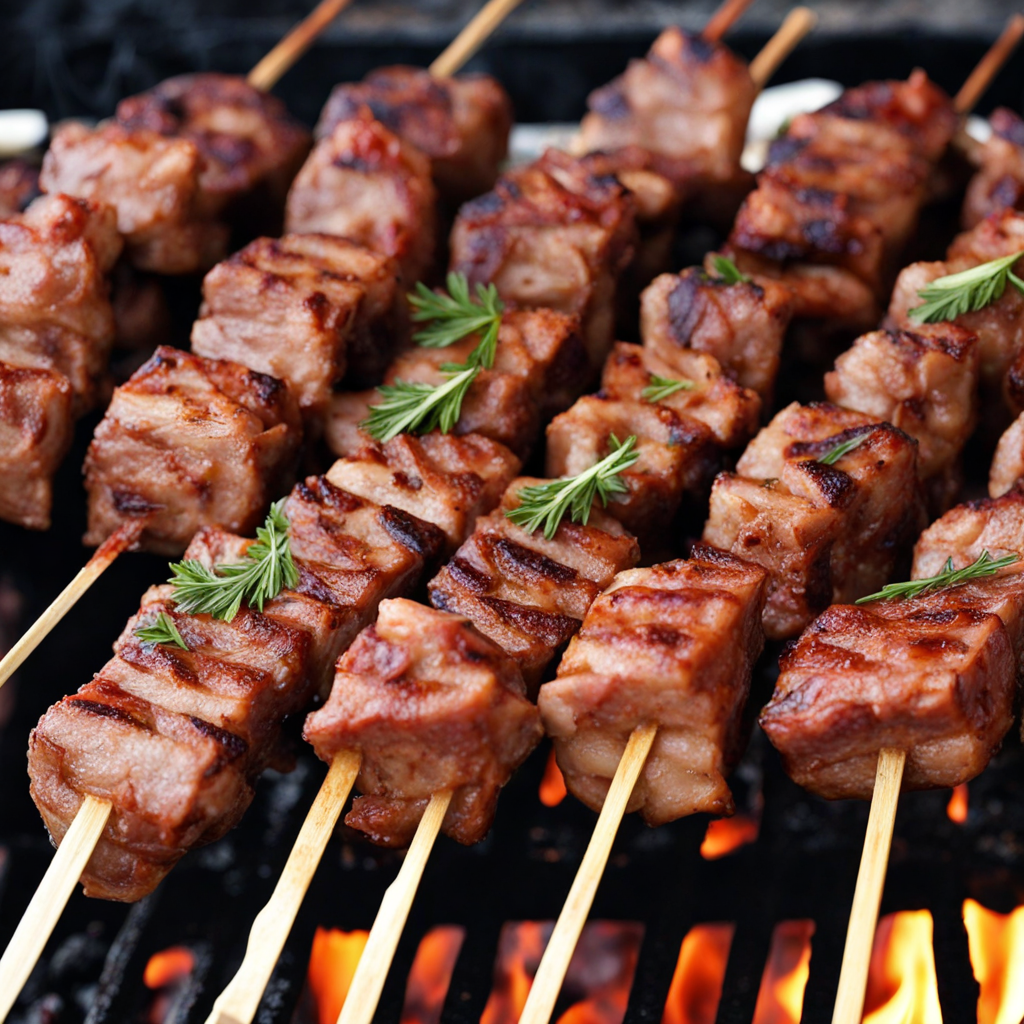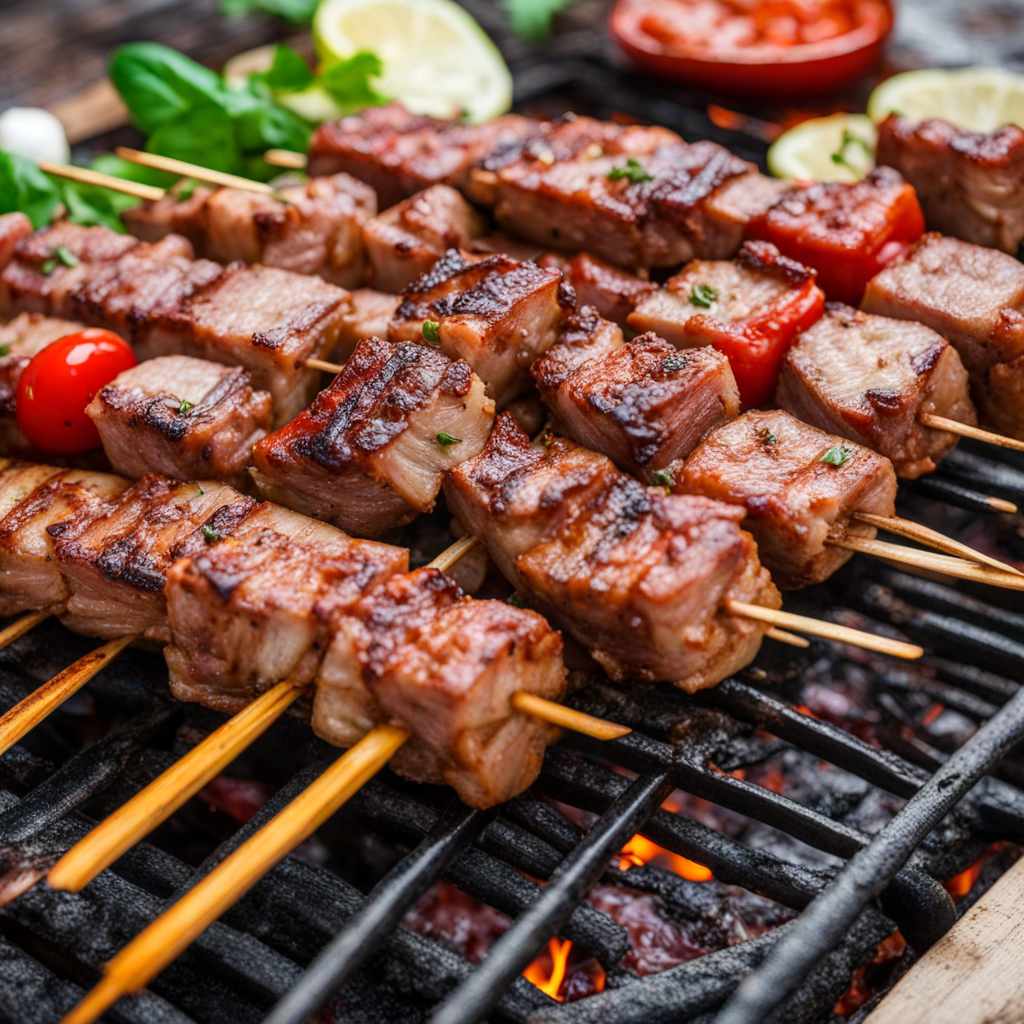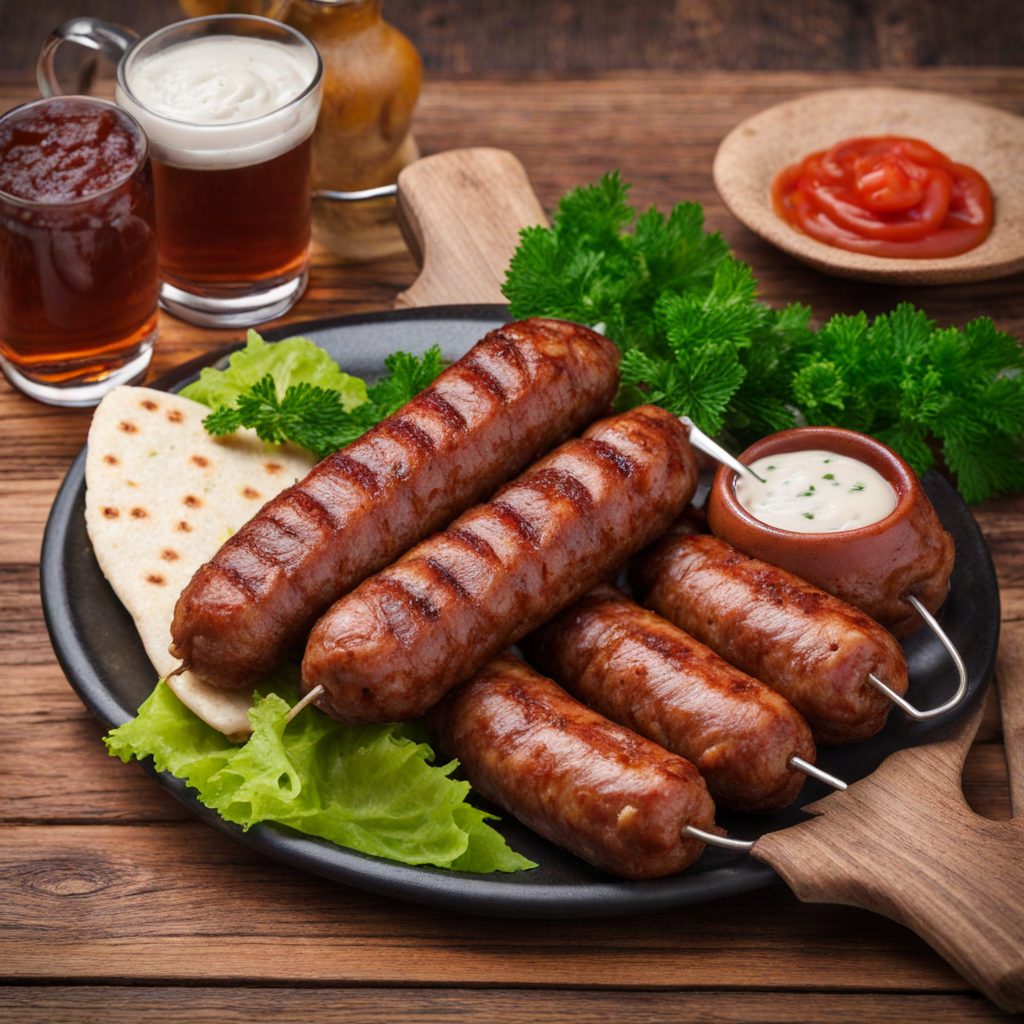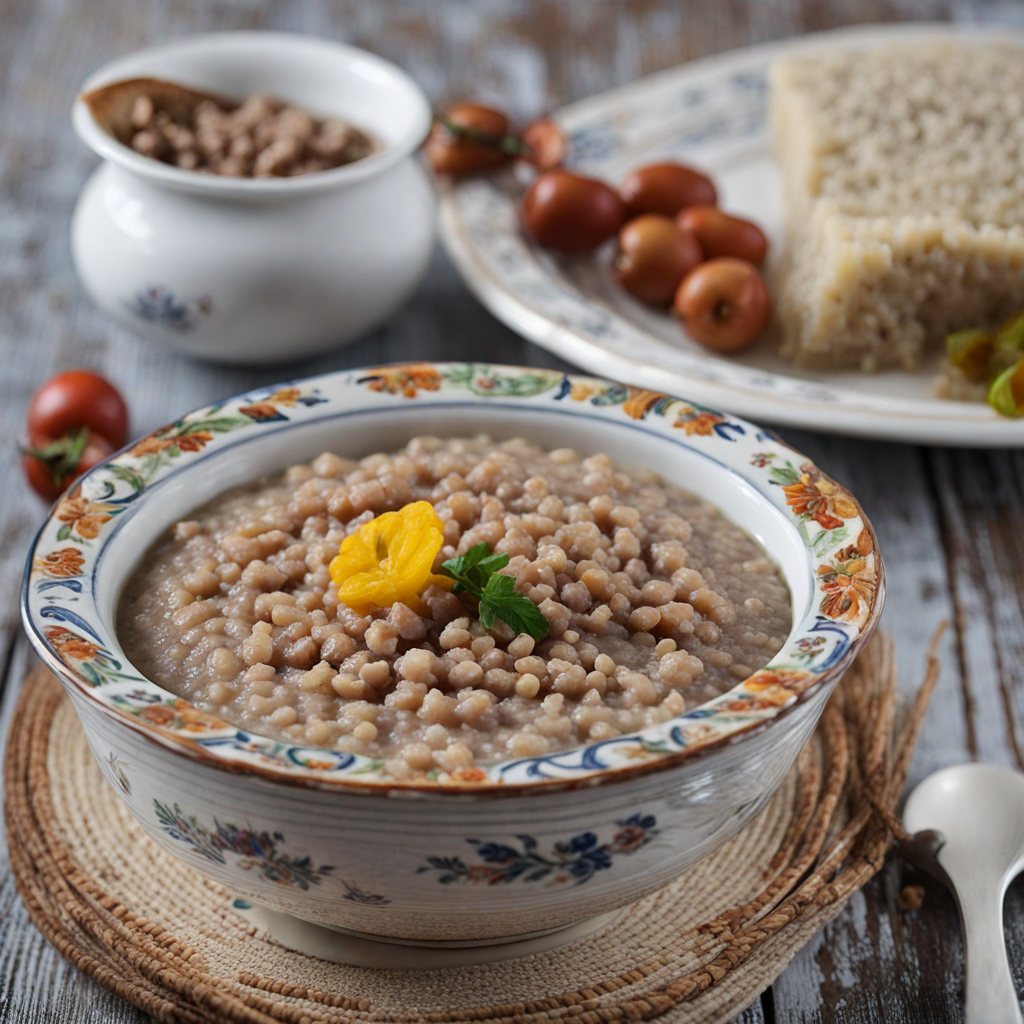Raznjici
Raznjici is a delightful Bosnian dish that showcases the country's rich culinary heritage. These skewers are typically made from marinated pieces of meat, commonly pork, beef, or chicken, which are seasoned with a mixture of spices and herbs. The marination process infuses the meat with flavors, creating a tender and juicy bite that is both savory and aromatic. The skewers are often accompanied by fresh vegetables, such as bell peppers and onions, which are grilled alongside the meat, adding a colorful and nutritious element to the dish. The preparation of Raznjici often involves grilling over an open flame, which imparts a smoky flavor that complements the marinated meat perfectly. The sizzling sound and the enticing aroma wafting from the grill add to the overall experience, making it a popular choice for outdoor gatherings and celebrations. Traditionally served with a side of somun (a type of flatbread), a fresh salad, or a tangy yogurt sauce, Raznjici is a dish that brings people together, inviting them to share in the joy of good food and good company. When you take your first bite of Raznjici, you'll experience a delightful contrast of textures and flavors. The outer layer is slightly charred, providing a satisfying crunch, while the inside remains succulent and flavorful. Each skewer is a wholesome combination of taste and tradition, capturing the essence of Bosnian cuisine. Whether enjoyed at a family barbecue or a local restaurant, Raznjici offers a culinary adventure that is sure to please any palate looking for a new and exciting taste.
How It Became This Dish
The Story of Ражњици: A Culinary Delight from Bosnia and Herzegovina Bosnia and Herzegovina, a country known for its rich history and diverse cultural influences, boasts a culinary tradition that reflects the various peoples who have inhabited the region over centuries. Among its many gastronomic treasures, Ражњици stands out as a beloved dish that not only tantalizes the taste buds but also serves as a symbol of community and celebration. This savory delight, grilled meat on skewers, has roots that intertwine with the country's history, cultural identity, and communal practices. Origins of Ражњици The name "Ражњици" derives from the Slavic word "ražanj," which means "skewer" or "spit." The dish typically consists of marinated pieces of meat—often pork, lamb, or chicken—threaded onto skewers and cooked over an open flame. While the precise origins of Ражњици are difficult to pinpoint, its preparation can be traced back to ancient traditions of roasting meat, a practice that transcends cultures and epochs. The concept of roasting meat on a skewer is not unique to Bosnia and Herzegovina. Variations of this cooking method can be found throughout the Mediterranean and the Middle East, where skewered meats are integral to culinary practices. The Ottoman Empire, which ruled the region for several centuries, played a significant role in shaping Bosnia's culinary landscape. It introduced various spices and cooking techniques that influenced local dishes, including Ражњици. Cultural Significance Ражњици holds a special place in the hearts of the Bosnian people, transcending its role as mere sustenance. It is often associated with social gatherings, celebrations, and festivals. Whether served at family barbecues, weddings, or larger community events, Ражњици brings people together, fostering a sense of camaraderie and shared joy. The act of grilling meat is not just about the food itself but also about the experience of cooking and sharing a meal with loved ones. In Bosnian culture, food is a conduit for storytelling and memory. Preparing Ражњици often involves family recipes passed down through generations, each with its unique twist on marinade and cooking technique. These recipes are often treasured family secrets, highlighting the importance of culinary heritage. The process of marinating the meat, often with a combination of garlic, paprika, and herbs, reflects the regional flavors that define Bosnian cuisine. The Preparation Process The preparation of Ражњици is an art form that requires skill and patience. The first step involves selecting quality cuts of meat, with lamb and pork being the most popular choices. The meat is then cut into uniform pieces to ensure even cooking. The marinade is integral to the dish, with various families having their own preferred mixtures of spices. Common ingredients include olive oil, garlic, salt, pepper, and sometimes yogurt, which tenderizes the meat and adds depth of flavor. Once the meat is marinated—often for several hours or even overnight—it is skewered, traditionally on wooden or metal sticks. The skewers are then placed over an open flame or a charcoal grill. The smoky aroma that fills the air during grilling is an essential part of the Ражњици experience. The meat is cooked until it reaches a perfect char, with a crispy exterior and juicy interior, evoking a sense of nostalgia for many who grew up enjoying this dish. Evolution Over Time While Ражњици has its roots in traditional cooking practices, its evolution over time reflects broader societal changes in Bosnia and Herzegovina. The breakup of Yugoslavia in the 1990s and the subsequent conflicts brought about significant shifts in cultural dynamics, including culinary practices. However, even in the face of adversity, the tradition of preparing Ражњици endured as a means of cultural expression and resilience. In recent years, Bosnia and Herzegovina has seen a resurgence of interest in traditional foods, with chefs and home cooks alike embracing local ingredients and time-honored recipes. This revival is not just a nod to nostalgia but also a way to assert cultural identity in a globalized world. Ражњици, with its straightforward preparation and communal aspect, has become emblematic of this movement, celebrated at food festivals and in restaurants that prioritize authentic Bosnian cuisine. Ражњици in Contemporary Cuisine Today, Ражњици is often served with a variety of accompaniments, enhancing its flavors. Traditional sides include fresh salads, grilled vegetables, and the ubiquitous somun—a type of flatbread that is perfect for wrapping around the meat. The dish is typically accompanied by a glass of local wine or rakija, a strong fruit brandy, which complements the savory flavors of the grilled meat. In urban centers like Sarajevo, restaurants specializing in traditional Bosnian cuisine often feature Ражњици prominently on their menus. Here, chefs may experiment with modern twists, incorporating contemporary culinary techniques while still honoring the dish's roots. This fusion of tradition and innovation has allowed Ражњици to maintain its relevance in a rapidly changing culinary landscape. Conclusion Ражњици is more than just a dish; it is a cultural artifact that embodies the spirit of Bosnia and Herzegovina. Its origins, steeped in tradition and influenced by a rich tapestry of historical events, reflect the resilience and adaptability of the Bosnian people. As a beloved staple at gatherings, it fosters community and connection, reminding us of the power of food to bring people together. In celebrating Ражњици, we acknowledge not only its delicious flavor but also its role as a symbol of identity, nostalgia, and cultural pride. As Bosnia and Herzegovina continues to navigate the complexities of modernity, Ражњици remains a cherished culinary tradition that honors the past while embracing the future. Whether enjoyed at a family gathering or a festive occasion, Ражњици invites us to partake in the rich narrative of a nation, one skewer at a time.
You may like
Discover local flavors from Bosnia And Herzegovina







